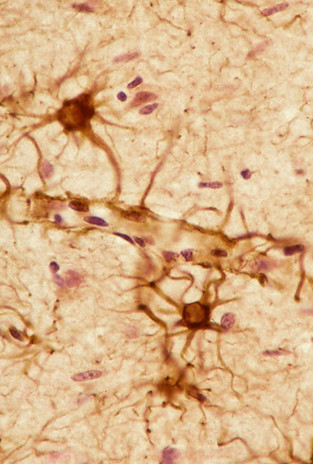FURTHER READING ABOUT OUR INTERESTS
Targeting the role of microglia activation in Alzheimer’s disease and Parkinson’s disease.
Changes in Microglia distribution, morphology and function have been described in different neurodegenerative diseases. Nevertheless, the many aspects of their function and their exact role in these pathologies remains elusive. It has been shown that changes in microglia can result in impaired and neurotoxic phenotype. Furthermore, microglia have been suggested to orchestrate neuroinflammation and migration of peripheral immune cells. In our lab, we focus on studying the effects that microglia dysfunction has on neurodegenerative diseases.
Understanding pathological changes in astrocytes and microglia in aging.
Ageing is the primary risk factor for most neurodegenerative diseases, including Alzheimer disease and Parkinson disease. Cellular senescence is a process in which cells cease to divide and undergo a morphological and functional change that has a key role in driving aging. Amounting evidence from recent years suggests that with age there is an increasing number of senescent cells in several tissues, including the brain, and that the accumulation of senescent cells in various organs can profoundly impact wound resolution as well as tissue deterioration. Thus, cellular senescence is a complex physiological response that has both positive and negative potential. In our lab, we strive to explore this exciting new field in the context of brain pathology.

Sounds Interesting? Check out these publications

